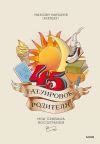Текст книги "Остаток дня / The Remains of the Day"

Автор книги: Кадзуо Исигуро
Жанр: Современная зарубежная литература, Современная проза
Возрастные ограничения: +16
сообщить о неприемлемом содержимом
Текущая страница: 9 (всего у книги 28 страниц) [доступный отрывок для чтения: 9 страниц]
‘Ah, Stevens.’
I had continued to proceed swiftly out of the room, returning without undue delay bearing a satisfactory fork. As I advanced again upon the table – and a Mr Farraday now apparently absorbed in his newspaper – it occurred to me I might slip the fork on to the tablecloth quietly without disturbing my employer’s reading. However, the possibility had already occurred to me that Mr Farraday was simply feigning indifference in order to minimize my embarrassment, and such a surreptitious delivery could be interpreted as complacency on my part towards my error – or worse, an attempt to cover it up. This was why, then, I decided it appropriate to put the fork down on to the table with a certain emphasis, causing my employer to start a second time, look up and mutter again:
‘Ah, Stevens.’
Errors such as these which have occurred over the last few months have been, naturally enough, injurious to one’s self-respect, but then there is no reason to believe them to be the signs of anything more sinister than a staff shortage. Not that a staff shortage is not significant in itself; but if Miss Kenton were indeed to return to Darlington Hall, such little slips, I am sure, would become a thing of the past. Of course, one has to remember there is nothing stated specifically in Miss Kenton’s letter – which, incidentally, I reread last night up in my room before putting out the light – to indicate unambiguously her desire to return to her former position. In fact, one has to accept the distinct possibility that one may have previously – perhaps through wishful thinking of a professional kind – exaggerated what evidence there was regarding such a desire on her part. For I must say I was a little surprised last night at how difficult it was actually to point to any passage which clearly demonstrated her wish to return.
But then again, it seems hardly worthwhile to speculate greatly on such matters now when one knows one will, in all likelihood, be talking face to face with Miss Kenton within forty-eight hours. Still, I must say, I did spend some long minutes turning those passages over in my mind last night as I lay there in the darkness, listening to the sounds from below of the landlord and his wife clearing up for the night.
Day three evening
Moscombe, near Tavistock, Devon
I feel I should perhaps return a moment to the question of his lordship’s attitude to Jewish persons, since this whole issue of anti-Semitism, I realize, has become a rather sensitive one these days. In particular, let me clear up this matter of a supposed bar against Jewish persons on the staff at Darlington Hall. Since this allegation falls very directly into my own realm, I am able to refute it with absolute authority. There were many Jewish persons on my staff throughout all my years with his lordship, and let me say furthermore that they were never treated in any way differently on account of their race. One really cannot guess the reason for these absurd allegations – unless, quite ludicrously, they originate from that brief, entirely insignificant few weeks in the early thirties when Mrs Carolyn Barnet came to wield an unusual influence over his lordship.
Mrs Barnet, the widow of Mr Charles Barnet, was at that point in her forties – a very handsome, some might say glamorous lady. She had a reputation for being formidably intelligent, and in those days one often tended to hear of how she had humiliated this or that learned gentleman at dinner over some important contemporary issue. For much of the summer of 1932, she was a regular presence at Darlington Hall, she and his lordship often spending hour after hour deep in conversation, typically of a social or political nature. And it was Mrs Barnet, as I recall, who took his lordship on those ‘guided inspections’ of the poorest areas of London’s East End, during which his lordship visited the actual homes of many of the families suffering the desperate plight of those years. That is to say, Mrs Barnet, in all likelihood, made some sort of contribution to Lord Darlington’s developing concern for the poor of our country and as such, her influence cannot be said to have been entirely negative. But she was too, of course, a member of Sir Oswald Mosley’s ‘blackshirts’ organization, and the very little contact his lordship ever had with Sir Oswald occurred during those few weeks of that summer. And it was during those same weeks that those entirely untypical incidents took place at Darlington Hall which must, one supposes, have provided what flimsy basis exists for these absurd allegations.
I call them ‘incidents’ but some of these were extremely minor. For instance, I recall overhearing at dinner one evening, when a particular newspaper had been mentioned, his lordship remarking: ‘Oh, you mean that Jewish propaganda sheet.’ And then on another occasion around that time, I remember his instructing me to cease giving donations to a particular local charity which regularly came to the door on the grounds that the management committee was ‘more or less homogeneously Jewish’. I have remembered these remarks because they truly surprised me at the time, his lordship never previously having shown any antagonism whatsoever towards the Jewish race.
Then, of course, came that afternoon his lordship called me into his study. Initially, he made rather general conversation, inquiring if all was well around the house and so on. Then he said:
‘I’ve been doing a great deal of thinking, Stevens. A great deal of thinking. And I’ve reached my conclusion. We cannot have Jews on the staff here at Darlington Hall.’
‘Sir?’
‘It’s for the good of this house, Stevens. In the interests of the guests we have staying here. I’ve looked into this carefully, Stevens, and I’m letting you know my conclusion.’
‘Very well, sir.’
‘Tell me, Stevens, we have a few on the staff at the moment, don’t we? Jews, I mean.’
‘I believe two of the present staff members would fall into that category, sir.’
‘Ah.’ His lordship paused for a moment, staring out of his window. ‘Of course, you’ll have to let them go.’
‘I beg your pardon, sir?’
‘It’s regrettable, Stevens, but we have no choice. There’s the safety and well-being of my guests to consider. Let me assure you, I’ve looked into this matter and thought it through thoroughly. It’s in all our best interests.’
The two staff members concerned were, in fact, both housemaids. It would hardly have been proper, then, to have taken any action without first informing Miss Kenton of the situation, and I resolved to do just this that same evening when I met her for cocoa in her parlour. I should perhaps say a few words here concerning these meetings in her parlour at the end of each day. These were, let me say, overwhelmingly professional in tone – though naturally we might discuss some informal topics from time to time. Our reason for instituting such meetings was simple: we had found that our respective lives were often so busy, several days could go by without our having an opportunity to exchange even the most basic of information. Such a situation, we recognized, seriously jeopardized the smooth running of operations, and to spend fifteen minutes or so together at the end of the day in the privacy of Miss Kenton’s parlour was the most straightforward remedy. I must reiterate, these meetings were predominantly professional in character; that is to say, for instance, we might talk over the plans for a forthcoming event, or else discuss how a new recruit was settling in.
In any case, to return to my thread, you will appreciate I was not unperturbed at the prospect of telling Miss Kenton I was about to dismiss two of her maids. Indeed, the maids had been perfectly satisfactory employees and – I may as well say this since the Jewish issue has become so sensitive of late – my every instinct opposed the idea of their dismissal. Nevertheless, my duty in this instance was quite clear, and as I saw it, there was nothing to be gained at all in irresponsibly displaying such personal doubts. It was a difficult task, but as such, one that demanded to be carried out with dignity. And so it was that when I finally raised the matter towards the end of our conversation that evening, I did so in as concise and businesslike a way as possible, concluding with the words:
‘I will speak to the two employees in my pantry tomorrow morning at ten thirty. I would be grateful then, Miss Kenton, if you would send them along. I leave it entirely to yourself whether or not you inform them beforehand as to the nature of what I am going to say to them.’
At this point, Miss Kenton seemed to have nothing to say in response. So I continued:
‘Well, Miss Kenton, thank you for the cocoa. It’s high time I was turning in. Another busy day tomorrow.’
It was then that Miss Kenton said:
‘Mr Stevens, I cannot quite believe my ears. Ruth and Sarah have been members of my staff for over six years now. I trust them absolutely and indeed they trust me. They have served this house excellently.’
‘I am sure that is so, Miss Kenton. However, we must not allow sentiment to creep into our judgement. Now really, I must bid you good night…’
‘Mr Stevens, I am outraged that you can sit there and utter what you have just done as though you were discussing orders for the larder. I simply cannot believe it. You are saying Ruth and Sarah are to be dismissed on the grounds that they are Jewish?’
‘Miss Kenton, I have just this moment explained the situation to you fully. His lordship has made his decision and there is nothing for you and I to debate over.’
‘Does it not occur to you, Mr Stevens, that to dismiss Ruth and Sarah on these grounds would be simply – wrong? I will not stand for such things. I will not work in a house in which such things can occur.’
‘Miss Kenton, I will ask you not to excite yourself and to conduct yourself in a manner befitting your position. This is a very straightforward matter. If his lordship wishes these particular contracts to be discontinued, then there is little more to be said.’
‘I am warning you, Mr Stevens, I will not continue to work in such a house. If my girls are dismissed, I will leave also.’
‘Miss Kenton, I am surprised to find you reacting in this manner. Surely I don’t have to remind you that our professional duty is not to our own foibles and sentiments, but to the wishes of our employer.’
‘I am telling you, Mr Stevens, if you dismiss my girls tomorrow, it will be wrong, a sin as any sin ever was one, and I will not continue to work in such a house.’
‘Miss Kenton, let me suggest to you that you are hardly well placed to be passing judgements of such a high and mighty nature. The fact is, the world of today is a very complicated and treacherous place. There are many things you and I are simply not in a position to understand concerning, say, the nature of Jewry. Whereas his lordship, I might venture, is somewhat better placed to judge what is for the best. Now, Miss Kenton, I really must retire. I thank you again for the cocoa. Ten thirty tomorrow morning. Send the two employees concerned, please.’
It was evident from the moment the two maids stepped into my pantry the following morning that Miss Kenton had already spoken to them, for they both came in sobbing. I explained the situation to them as briefly as possible, underlining that their work had been satisfactory and that they would, accordingly, receive good references. As I recall, neither of them said anything of note throughout the whole interview, which lasted perhaps three or four minutes, and they left sobbing just as they had arrived.
Miss Kenton was extremely cold towards me for some days following the dismissal of the employees. Indeed, at times she was quite rude to me, even in the presence of staff. And although we continued our habit of meeting for cocoa in the evening, the sessions tended to be brief and unfriendly. When there had been no sign of her behaviour abating after a fortnight or so, I think you will understand that I started to become a little impatient. I thus said to her during one of our cocoa sessions, in an ironic tone of voice:
‘Miss Kenton, I’d rather expected you to have handed in your notice by now,’ accompanying this with a light laugh.
I did, I suppose, hope that she might finally relent a little and make some conciliatory response or other, allowing us once and for all to put the whole episode behind us. Miss Kenton, however, simply looked at me sternly and said:
‘I still have every intention of handing in my notice, Mr Stevens. It is merely that I have been so busy, I have not had time to see to the matter.’
This did, I must admit, make me a little concerned for a time that she was serious about her threat. But then as week followed week, it became clear that there was no question of her leaving Darlington Hall, and as the atmosphere between us gradually thawed, I suppose I tended to tease her every now and again by reminding her of her threatened resignation. For instance, if we were discussing some future large occasion to be held at the house, I might put in:
‘That is, Miss Kenton, assuming you are still with us at that stage.’
Even months after the event, such remarks still tended to make Miss Kenton go quiet – though by this stage, I fancy, this was due more to embarrassment than anger.
Eventually, of course, the matter came to be, by and large, forgotten. But I remember it coming up one last time well over a year after the dismissal of the two maids.
It was his lordship who initially revived the matter one afternoon when I was serving his tea in the drawing room. By then, Mrs Carolyn Barnef’s days of influence over his lordship were well over – indeed, the lady had ceased to be a visitor at Darlington Hall altogether. It is worth pointing out, furthermore, that his lordship had by that time severed all links with the ‘blackshirts’, having witnessed the true, ugly nature of that organization.
‘Oh, Stevens,’ he had said to me. ‘I’ve been meaning to say to you. About that business last year. About the Jewish maids. You recall the matter?’
‘Indeed, sir.’
‘I suppose there’s no way of tracing them now, is there? It was wrong what happened and one would like to recompense them somehow.’
‘I will certainly look into the matter, sir. But I am not at all certain it will be possible to ascertain their whereabouts at this stage.’
‘See what you can do. It was wrong, what occurred.’
I assumed this exchange with his lordship would be of some interest to Miss Kenton, and I decided it was only proper to mention it to her – even at the risk of getting her angry again. As it turned out, my doing so on that foggy afternoon I encountered her in the summerhouse produced curious results.
I recall a mist starting to set in as I crossed the lawn that afternoon. I was making my way up to the summerhouse for the purpose of clearing away the remains of his lordship’s taking tea there with some guests a little while earlier. I can recall spotting from some distance – long before reaching the steps where my father had once fallen – Miss Kenton’s figure moving about inside the summerhouse. When I entered she had seated herself on one of the wicker chairs scattered around its interior, evidently engaged in some needlework. On closer inspection, I saw she was performing repairs to a cushion. I went about gathering up the various items of crockery from amidst the plants and the cane furniture, and as I did so, I believe we exchanged a few pleasantries, perhaps discussed one or two professional matters. For the truth was, it was extremely refreshing to be out in the summerhouse after many continuous days in the main building and neither of us was inclined to hurry with our tasks. Indeed, although one could not see out far that day on account of the encroaching mist, and the daylight too was rapidly fading by this stage, obliging Miss Kenton to hold her needlework up to the last of it, I remember our often breaking off from our respective activities simply to gaze out at the views around us. In fact, I was looking out over the lawn to where the mist was thickening down around the poplar trees planted along the cart-track, when I finally introduced the topic of the previous year’s dismissals. Perhaps a little predictably, I did so by saying:
‘I was just thinking earlier, Miss Kenton. It’s rather funny to remember now, but you know, only this time a year ago, you were still insisting you were going to resign. It rather amused me to think of it.’ I gave a laugh, but behind me Miss Kenton remained silent. When I finally turned to look at her, she was gazing through the glass at the great expanse of fog outside.
‘You probably have no idea, Mr Stevens,’ she said eventually, ‘how seriously I really thought of leaving this house. I felt so strongly about what happened. Had I been anyone worthy of any respect at all, I dare say I would have left Darlington Hall long ago.’ She paused for a while, and I turned my gaze back out to the poplar trees down in the distance. Then she continued in a tired voice: ‘It was cowardice, Mr Stevens. Simple cowardice. Where could I have gone? I have no family. Only my aunt. I love her dearly, but I can’t live with her for a day without feeling my whole life is wasting away. I did tell myself, of course, I would soon find some new situation. But I was so frightened, Mr Stevens. Whenever I thought of leaving, I just saw myself going out there and finding nobody who knew or cared about me. There, that’s all my high principles amount to. I feel so ashamed of myself. But I just couldn’t leave, Mr Stevens. I just couldn’t bring myself to leave.’
Miss Kenton paused again and seemed to be deep in thought. I thus thought it opportune to relate at this point, as precisely as possible, what had taken place earlier between myself and Lord Darlington. I proceeded to do so and concluded by saying:
‘What’s done can hardly be undone. But it is at least a great comfort to hear his lordship declare so unequivocally that it was all a terrible misunderstanding. I just thought you’d like to know, Miss Kenton, since I recall you were as distressed by the episode as I was.’
‘I’m sorry, Mr Stevens,’ Miss Kenton said behind me in an entirely new voice, as though she had just been jolted from a dream, ‘I don’t understand you.’ Then as I turned to her, she went on: ‘As I recall, you thought it was only right and proper that Ruth and Sarah be sent packing. You were positively cheerful about it.’
‘Now really, Miss Kenton, that is quite incorrect and unfair. The whole matter caused me great concern, great concern indeed. It is hardly the sort of thing I like to see happen in this house.’
‘Then why, Mr Stevens, did you not tell me so at the time?’
I gave a laugh, but for a moment was rather at a loss for an answer. Before I could formulate one, Miss Kenton put down her sewing and said:
‘Do you realize, Mr Stevens, how much it would have meant to me if you had thought to share your feelings last year? You knew how upset I was when my girls were dismissed. Do you realize how much it would have helped me? Why, Mr Stevens, why, why, why do you always have to pretend?’
I gave another laugh at the ridiculous turn the conversation had suddenly taken.
‘Really, Miss Kenton,’ I said, ‘I’m not sure I know what you mean. Pretend? Why, really…’
‘I suffered so much over Ruth and Sarah leaving us. And I suffered all the more because I believed I was alone.’
‘Really, Miss Kenton…’ I picked up the tray on which I had gathered together the used crockery. ‘Naturally, one disapproved of the dismissals. One would have thought that quite self-evident.’
She did not say anything, and as I was leaving I glanced back towards her. She was again gazing out at the view, but it had by this point grown so dark inside the summerhouse, all I could see of her was her profile outlined against a pale and empty background. I excused myself and proceeded to make my exit.
Now that I have recalled this episode of the dismissing of the Jewish employees, I am reminded of what could, I suppose, be called a curious corollary to that whole affair: namely, the arrival of the housemaid called Lisa. That is to say, we were obliged to find replacements for the two dismissed Jewish maids, and this Lisa turned out to be one of them.
This young woman had applied for the vacancy with the most dubious of references, which spelt out to any experienced butler that she had left her previous situation under something of a cloud. Moreover, when Miss Kenton and I questioned her, it became clear that she had never remained in any position for longer than a few weeks. In general, her whole attitude suggested to me that she was quite unsuitable for employment at Darlington Hall. To my surprise, however, once we had finished interviewing the girl, Miss Kenton began to insist we take her on.
‘I see much potential in this girl,’ she continued to say in the face of my protests. ‘She will be directly under my supervision and I will see to it she proves good.’
I recall we became locked in disagreement for some time, and it was perhaps only the fact that the matter of the dismissed maids was so recent in our minds that I did not hold out as strongly as I might against Miss Kenton. In any case, the result was that I finally gave way, albeit by saying:
‘Miss Kenton, I hope you realize that the responsibility for taking on this girl rests squarely with yourself. There is no doubt as far as I am concerned that at this present moment she is far from adequate to be a member of our staff. I am only allowing her to join on the understanding that you will personally oversee her development.’
‘The girl will turn out well, Mr Stevens. You will see.’
And to my astonishment, during the weeks that followed, the young girl did indeed make progress at a remarkable rate. Her attitude seemed to improve by the day, and even her manner of walking and going about tasks – which during the first days had been so slovenly that one had to avert one’s eyes – improved dramatically.
As the weeks went on, and the girl appeared miraculously to have been transformed into a useful member of staff, Miss Kenton’s triumph was obvious. She seemed to take particular pleasure in assigning Lisa some task or other that required a little extra responsibility, and if I were watching, she would be sure to try and catch my eye with her rather mocking expression. And the exchange we had that night in Miss Kenton’s parlour over cocoa was fairly typical of the sort of conversation we tended to have on the topic of Lisa.
‘No doubt, Mr Stevens,’ she said to me, ‘you will be extremely disappointed to hear Lisa has still not made any real mistake worth speaking of.’
‘I’m not disappointed at all, Miss Kenton. I’m very pleased for you and for all of us. I will admit, you have had some modest success regarding the girl thus far.’
‘Modest success! And look at that smile on your face, Mr Stevens. It always appears when I mention Lisa. That tells an interesting story in itself. A very interesting story indeed.’
‘Oh, really, Miss Kenton. And may I ask what exactly?’
‘It is very interesting, Mr Stevens. Very interesting you should have been so pessimistic about her. Because Lisa is a pretty girl, no doubt about it. And I’ve noticed you have a curious aversion to pretty girls being on the staff.’
‘You know perfectly well you are talking nonsense, Miss Kenton.’
‘Ah, but I’ve noticed it, Mr Stevens. You do not like pretty girls to be on the staff. Might it be that our Mr Stevens fears distraction? Can it be that our Mr Stevens is flesh and blood after all and cannot fully trust himself?’
‘Really, Miss Kenton. If I thought there was one modicum of sense in what you are saying I might bother to engage with you in this discussion. As it is, I think I shall simply place my thoughts elsewhere while you chatter away.’
‘Ah, but then why is that guilty smile still on your face, Mr Stevens?’
‘It is not a guilty smile at all, Miss Kenton. I am slightly amused by your astonishing capacity to talk nonsense, that is all.’
‘It is a guilty little smile you have on, Mr Stevens. And I’ve noticed how you can hardly bear to look at Lisa. Now it is beginning to become very clear why you objected so strongly to her.’
‘My objections were extremely solid, Miss Kenton, as you very well know. The girl was completely unsuitable when she first came to us.’
Now of course, you must understand we would never have carried on in such a vein within the hearing of staff members. But just around that time, our cocoa evenings, while maintaining their essentially professional character, often tended to allow room for a little harmless talk of this sort – which did much, one should say, to relieve the many tensions produced by a hard day.
Lisa had been with us for some eight or nine months – and I had largely forgotten her existence by this point – when she vanished from the house together with the second footman. Now, of course, such things are simply part and parcel of life for any butler of a large household. They are intensely irritating, but one learns to accept them. In fact, as far as these sorts of ‘moonlight’ departures were concerned, this was among the more civilized. Aside from a little food, the couple had taken nothing that belonged to the house, and furthermore, both parties had left letters. The second footman, whose name I no longer recall, left a short note addressed to me, saying something like: ‘Please do not judge us too harshly. We are in love and are going to be married.’ Lisa had written a much longer note addressed to ‘the Housekeeper’, and it was this letter Miss Kenton brought into my pantry on the morning following their disappearance. There were, as I recall, many misspelt, ill-formed sentences about how much in love the couple were, how wonderful the second footman was, and how marvellous the future was that awaited them both. One line, as I recall it, read something to the effect of: ‘We don’t have money but who cares we have love and who wants anything else we’ve got one another that’s all anyone can ever want.’ Despite the letter being three pages long, there was no mention of any gratitude towards Miss Kenton for the great care she had given the girl, nor was there any note of regret at letting all of us down.
Miss Kenton was noticeably upset. All the while I was running my eye over the young woman’s letter, she sat there at the table before me, looking down at her hands. In fact – and this strikes one as rather curious – I cannot really recall seeing her more bereft than on that morning. When I put the letter down on the table, she said:
‘So, Mr Stevens, it seems you were right and I was wrong.’
‘Miss Kenton, there is nothing to upset yourself over,’ I said. ‘These things happen. There really is little the likes of us can ever do to prevent these things.’
‘I was at fault, Mr Stevens. I accept it. You were right all along, as ever, and I was wrong.’
‘Miss Kenton, I really cannot agree with you. You did wonders with that girl. What you managed with her proved many times over that it was in fact I who was in error. Really, Miss Kenton, what has happened now might have happened with any employee. You did remarkably well with her. You may have every reason to feel let down by her, but no reason at all to feel any responsibility on your own part.’
Miss Kenton continued to look very dejected. She said quietly:
‘You’re very kind to say so, Mr Stevens. I’m very grateful.’ Then she sighed tiredly and said: ‘She’s so foolish. She might have had a real career in front of her. She had ability. So many young women like her throw away their chances, and all for what?’
We both looked at the notepaper on the table between us, and then Miss Kenton turned her gaze away with an air of annoyance.
‘Indeed,’ I said. ‘Such a waste, as you say.’
‘So foolish. And the girl is bound to be let down. And she had a good life ahead of her if only she’d persevered. In a year or two, I could have had her ready to take on a housekeeper’s post in some small residence. Perhaps you think that far-fetched, Mr Stevens, but then look how far I came with her in a few months. And now she’s thrown it all away. All for nothing.’
‘It really is most foolish of her.’
I had started to gather up the sheets of notepaper before me, thinking I might file them away for reference. But then as I was doing so, I became a little uncertain as to whether Miss Kenton had intended me to keep the letter, or if she herself wished to do so, and I placed the pages back down on the table between the two of us. Miss Kenton, in any case, seemed far away.
‘She’s bound to be let down,’ she said again. ‘So foolish.’
But I see I have become somewhat lost in these old memories. This had never been my intention, but then it is probably no bad thing if in doing so I have at least avoided becoming unduly preoccupied with the events of this evening – which I trust have now finally concluded themselves. For these last few hours, it must be said, have been rather trying ones.
I find myself now in the attic room of this small cottage belonging to Mr and Mrs Taylor. That is to say, this is a private residence; this room, made so kindly available to me tonight by the Taylors, was once occupied by their eldest son, now long grown and living in Exeter. It is a room dominated by heavy beams and rafters, and the floorboards have no carpet or rug to cover them, and yet the atmosphere is surprisingly cosy. And it is clear Mrs Taylor has not only made up the bed for me, she has also tidied and cleaned; for aside from a few cobwebs near the rafters, there is little to reveal that this room has been unoccupied for many years. As for Mr and Mrs Taylor themselves, I have ascertained that they ran the village green grocery here from the twenties until their retirement three years ago. They are kind people, and though I have on more than one occasion tonight offered remuneration for their hospitality, they will not hear of it.
Внимание! Это не конец книги.
Если начало книги вам понравилось, то полную версию можно приобрести у нашего партнёра - распространителя легального контента. Поддержите автора!Правообладателям!
Данное произведение размещено по согласованию с ООО "ЛитРес" (20% исходного текста). Если размещение книги нарушает чьи-либо права, то сообщите об этом.Читателям!
Оплатили, но не знаете что делать дальше?








































